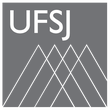Banca de DEFESA: CAROLINE DOS SANTOS MARTINS GUIEIRO
Uma banca de DEFESA de MESTRADO foi cadastrada pelo programa.STUDENT : CAROLINE DOS SANTOS MARTINS GUIEIRO
DATE: 15/07/2022
TIME: 09:00
LOCAL: Sala virtual através do link https://meet.google.com/fuv-bmnf-fea
TITLE:
BIOSOLUBILIZATION OF SILICATIC AGROMINERALS AS AN ALTERNATIVE SOURCE OF POTASSIUM FOR AGRICULTURE.
KEY WORDS:
Rock stone,silicate minerals, potassium,microorganismos
PAGES: 31
BIG AREA: Ciências Agrárias
AREA: Agronomia
SUBÁREA: Ciência do Solo
SPECIALTY: Microbiologia e Bioquímica do Solo
SUMMARY:
Potassium (K) demand for Brazilian agricultural production is high and high
doses of potassium fertilizers must be added to the soil, particularly in the cerrado to obtain
high yields.The import of a large part of potassium fertilizers (96%) causes a strong external
dependence on Brazil, increasing production costs for rural producers and leaving Brazilian
agriculture vulnerable to market fluctuations.A viable alternative to overcome this bottleneck
is the search for efficient microorganisms in the biological availability of potassium, and the
development of bioinoculants opens a new perspective for increasing productivity and soil
fertility, with potential for partial or total replacement of synthetic fertilizers. Thus, in order to
enhance the availability of potassium for plants, research has been developed with an emphasis
on selection of microorganisms in order to add value to silicate rocks through biological
processes that promote the improvement of nutrient availability to plants.The objective of this
work was to select and identify strains of bacteria, fungi and actinomycetes efficient in the “in
vitro” biosolubilization of the verdetesilicate rock of Abaeté. In the preliminary screening
phase, seventy-five isolates from each group of microorganisms (bacteria, fungi and
actinomycetes) belonging to the Collection of Multifunctional Microorganisms of Embrapa
Milho e Sorgo were randomly pre-selected.The microorganisms were reactivated in BDA
medium and selected for their ability to form a halo in Aleksandrov solid medium containing
potassium aluminum silicate as the only source of K.At this stage, 10 strains of bacteria, 12 of
fungi and 6 of actinomycetes were selected. In liquid medium, the biosolubilization efficiency
of the rock by the microorganisms was evaluated in 250 ml erlemeyer flasks containing 50 ml
of MISK culture medium containing Abaeté verdeterock powder as the only source of K. For
bacterial inoculation, 100 μL of suspension was used in each flask, with OD.= 1, and for fungi,
each flask was inoculated with four 8mm diameter mycelial discs. After 6, 12 and 18 days of
incubation the supernatant was removed for determination of K by flame spectrometry. The
solubilization efficiency of K varied according to each isolate. Among bacteria, strains B30 and
B116 showed the highest K releases among fungi strains F22 and F18 showed to be more
efficient.
BANKING MEMBERS:
Presidente - 371.206.387-34 - IVANILDO EVODIO MARRIEL - EMBRAPA
Externa ao Programa - 3146380 - CRISTIANE ALCANTARA DOS SANTOS
Externa à Instituição - MARIA LUCIA FERREIRA SIMEONE - EMBRAPA



